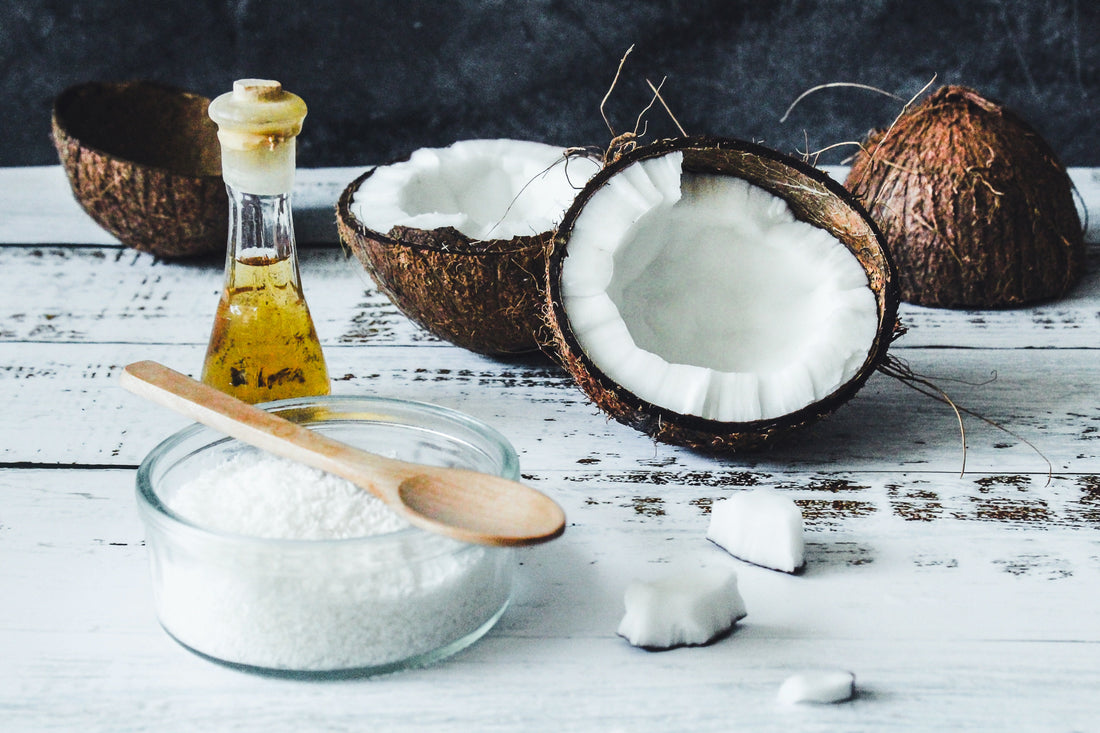
MCT’s: for calories that count not just for counting calories!
Aria PalcichShare
MCT oil has been a hot topic in the keto world as of late. You might even be sipping on MCT's in your keto coffee as you read this blog. But what are MCTs? They give us energy...curb appetite.. and increase satiety.....but how? To dig deeper, we talked with Gordon Raza from New Roots Herbal who shared why they’re such a great addition to the keto lifestyle.
WHAT ARE MCT’s
MCT’s - otherwise known as medium chain triglycerides - are simply a type of fat. That's it. All fat consists of a chain of carbon and hydrogen molecules, so in MCT’s, the ‘M’ or ‘medium’ is referring to the length of the carbon chain. Medium chain fats (aka MCT’s) contain between six and twelve carbons while short chain fats contain six or less. (The two most popular and efficient medium chain triglycerides are caprylic (C8) and capric (C10) fatty acids). Food contains fats of all different lengths (short, medium and long) but it is only the medium chain fats (MCT’s) that are quickly absorbable and useable by the body, making them an excellent addition to the keto diet.
SOURCES OF MCT’s
High-fat dairy products like cheese, butter, milk and yoghurt contain MCT’s, especially when sourced from grass-fed cows or goats. However it is coconut and palm kernel oils that are the best natural sources of both C8 and C10 fatty acids available in supplement form. It’s important to note the biological activity of C8 and C10 fatty acids is the same regardless of their source, but most popular brands of MCTs are formulated with an approximate 60/40 ratio sourced from both coconut and palm kernel oil.
MCT’s & KETO: A MATCH MADE IN HIGH-FAT HEAVEN
Imagine yourself as part of a large group waiting for a table at a busy restaurant; while you patiently wait, single diners and couples seem to get seated with VIP status. You can think of MCT’s as the smaller sized groups in this scenario. While carbohydrates, fats and proteins have their own unique, and complex requirements for digestion, medium chain triglycerides breeze through the intestines with ease to the bloodstream where they travel directly to the liver.

What this means is that the body can use them for quick fuel without needing to engage all the other organs usually involved in the digestive process. Additionally, MCT oil is easily converted into ketone bodies, acting as a natural booster to achieving nutritional ketosis. In fact, MCT’s are metabolized up to eight times faster than carbohydrates making them an amazing source of fuel for the brain. They’re also not stored as fat like carbohydrates are!
WHY INCLUDE MCT’s IN THE DIET?
MCT’s populate many therapeutic niches. They’re a frequent addition to the diets of people afflicted with malabsorption syndrome, as an ingredient in meal replacement beverages that target seniors and they can transform your morning cup of brew into a functional beverage when paired with a dollop of butter. Their versatility makes them invaluable for compliance with a ketogenic diet. Click here for a keto coffee recipe!
With a calorie count measuring 100 per tablespoon along with a neutral flavour, they’re convenient to add to food, beverages or even vinaigrettes. Their rapid rate of absorption and conversion to ketone bodies by the liver make them a hybrid fuel for the body and mind. MCT’s are by no means a miracle weight loss supplement, but their digestive efficiency can help with weight management as they help satisfy hunger faster and as a result curb appetite. Drinking a coffee with added MCT is a great way to alleviate between those meal dips in energy that can make the pace of a work day grind to a halt.

